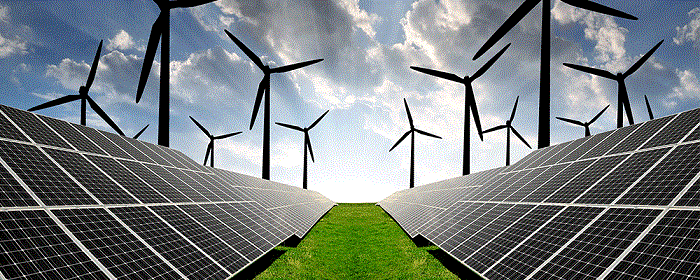According to reports released by business intelligence service Meed; ‘Renewable Energy in the Mena Region 2017’ – all tabled and existing development projects require an estimated $200BN investment.
From this study, the Middle East and North Africa has around 67GW of clean energy projects at various stages of the design and study stage; this is expected to increase further in the next five years as programmes are being implemented to meet the growing demand for power.
Estimates by Meed show that this will require investment of $200BN, in addition to the expansion and an upgrade of existing networks to facilitate the extra capacity.
Slow adoption of clean Energy
Despite having significant hydrocarbon reserves, the region has been slow to adopt renewable energy, Khaleej Times noted.
In 2013, the UAE emirate of Abu Dhabi commissioned the region’s first utility scale solar plant, 100MW Shams 1 concentrated solar power plant.
Also read: Algeria takes lead in renewable energy
Since the drastic fall in the cost of photovoltaic (PV) solar has resulted in regional utilities launching some of the world’s largest solar projects, which have been supported by the submission of record low tariffs.
Utility Scale
The study examines 12 African countries, which had a total installed generation capacity of 271,761MW in 2015, with just over 7% of this coming from renewable energy.
Most of this power has been generated through hydropower with only Morocco in Africa and Abu Dhabi and Dubai in UAE having commissioned solar projects with capacities greater than 100MW.
At the beginning of this month, it was announced that the African Development Bank (AfDB) and the World Bank each approved finance of $25M for the construction of the Midelt Phase I CSP Project in Morocco.
This project is said to generate solar power through an innovative hybrid concentrated solar power (CSP) and photovoltaic (PV) solution.
Early this year, through a 25-year power purchase agreement with several partners,Egypt secured a future 400MW of solar power.

Leave a Reply